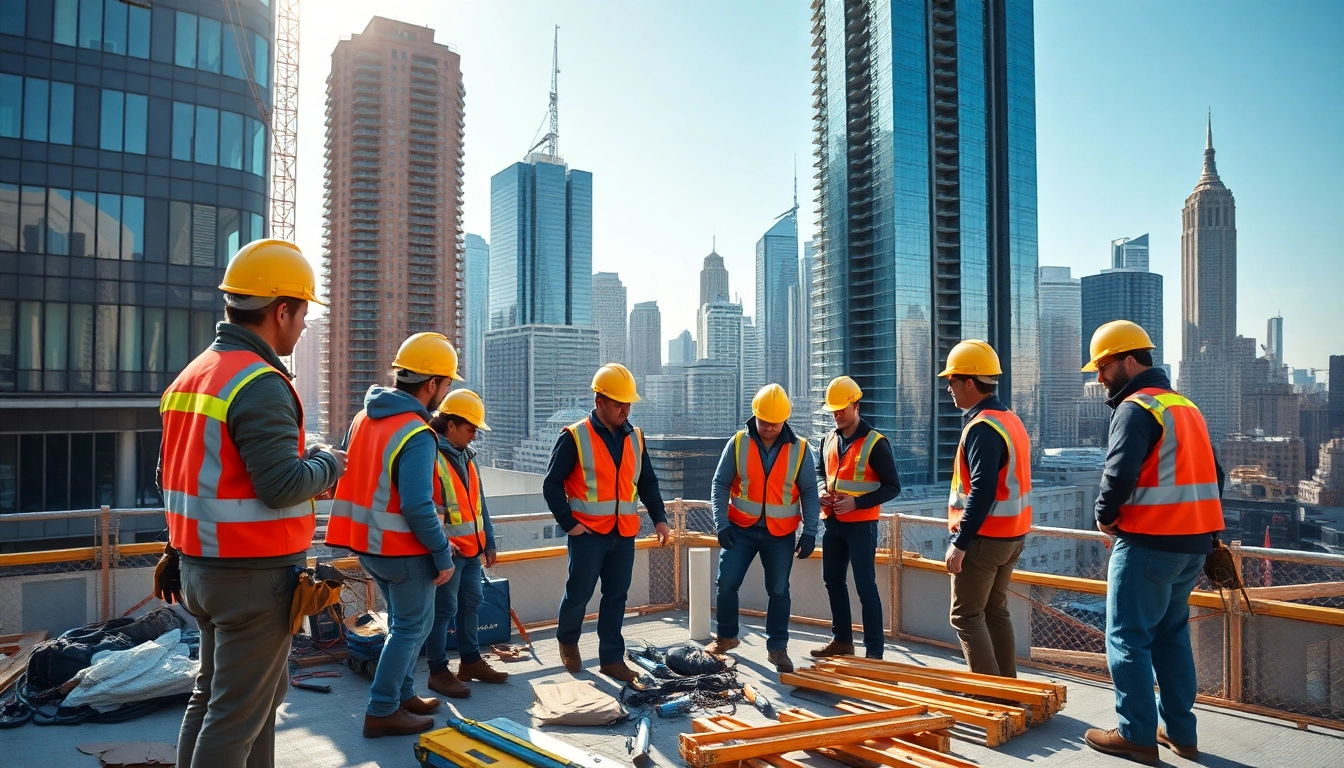Understanding the Role of a New York City General Contractor
Definition and Responsibilities
A New York City General Contractor (GC) plays a crucial role in the construction and renovation process, acting as the primary overseer of a building project. Their responsibilities encompass a wide range of activities, including scheduling construction activities, managing the workforce, procuring materials, and ensuring compliance with zoning laws and safety regulations. They serve as the main point of contact between homeowners, subcontractors, and suppliers, facilitating effective communication throughout the project.
Importance in Construction Projects
The significance of a New York City General Contractor cannot be overstated. They bring expertise and experience that is invaluable in navigating the complexities of urban construction. GCs are tasked with ensuring that projects are completed on time, within budget, and to the satisfaction of the client. Their ability to coordinate multiple trades and maintain standards for quality control are essential for successful project outcomes.
Key Skills to Look For
When hiring a New York City General Contractor, several key skills should be considered:
- Project Management: Proficient in planning, executing, and completing projects efficiently.
- Budgeting: Ability to create detailed budgets and manage costs throughout the project lifecycle.
- Communication: Strong communication skills facilitate collaboration with different stakeholders.
- Problem-Solving: Ability to quickly identify issues and implement solutions effectively.
- Knowledge of Local Codes: Familiarity with New York City’s building codes and regulations is essential for compliance.
How to Choose the Right New York City General Contractor
Research and Referrals
The first step in selecting a New York City General Contractor is extensive research. Begin by asking for referrals from friends, family, or colleagues who have undertaken similar projects. Verify their recommendations by checking online reviews and visiting construction forums. Look for feedback on quality, reliability, and timeliness, which can help narrow down your options.
Evaluating Credentials and Experience
Once you’ve gathered potential candidates, evaluating their credentials is imperative. Check that contractors are licensed, insured, and have a valid tax ID number. Request references and review their previous projects to assess their experience, particularly in projects similar to yours. The right contractor should have proven success managing projects of comparable scope and complexity.
Interviewing Candidates Effectively
After narrowing down your list, conduct interviews with the top candidates. Prepare a list of questions that address project timelines, management styles, safety protocols, and communication preferences. A good contractor should be able to provide clear answers and articulate how they handle unexpected challenges during projects.
Cost Factors Associated with New York City General Contractors
Understanding Pricing Structures
Pricing structures for general contracting services can vary based on several factors, including project scope and complexity. Generally, contractors may charge a flat fee, hourly rate, or a percentage of the total project cost. Understanding these structures will help you budget effectively and avoid unexpected costs.
Common Additional Costs
It’s important to account for additional expenses beyond the basic contractor fees. Common costs include:
- Permits: Necessary permits for construction can add to expenses.
- Materials: Quality materials often inflate costs, affecting budget planning.
- Subcontractors: Hiring specialized workers can entail additional charges that should be factored in.
- Change Orders: Modifications to the original plan during a project can incur further costs.
Budgeting for Contingencies
A well-planned budget should always include a contingency reserve to cover unforeseen expenses that may arise during construction. Experts recommend setting aside approximately 10-20% of the total project cost for contingencies, allowing you to manage potential issues without derailing the entire project.
Best Practices for Working with a New York City General Contractor
Setting Clear Expectations
Establishing clear expectations at the project’s outset is crucial. This includes defining timelines, budgets, communication methods, and quality standards. Creating a comprehensive contract outlining all these details will serve as a reference point throughout the project, ensuring accountability on both sides.
Effective Communication Strategies
Maintaining open lines of communication with your general contractor is essential for smooth operations. Schedule regular meetings to discuss progress and any potential issues. Utilizing project management software can also aid in keeping everyone on the same page, especially in a complex urban setting like New York City.
Monitoring Progress and Quality
As the project unfolds, actively monitoring progress is essential to ensure it stays on track. Regular site visits and progress assessments allow you to evaluate the quality of work being delivered. Discuss any concerns promptly with your contractor to facilitate immediate resolutions.
Trends in the New York City General Contracting Industry
Sustainable Construction Practices
With the increasing emphasis on sustainability, many New York City General Contractors are adopting greener practices. This trend includes using eco-friendly materials, promoting waste reduction, and implementing energy-efficient technologies. As a homeowner, opting for sustainable construction not only benefits the environment but can also enhance property value.
Innovative Technologies in General Contracting
The construction industry is increasingly embracing innovative technologies to enhance efficiency and productivity. Technologies such as Building Information Modeling (BIM), drone surveying, and mobile project management applications are transforming how projects are designed, monitored, and managed. A forward-thinking contractor will leverage these technologies to improve project outcomes.
The Impact of Urban Development on Contracting
Urban development continues to shape the services offered by New York City General Contractors. As the demand for housing and commercial spaces increases, contractors need to adapt to changing regulations, zoning laws, and community needs. This adaptability allows for the timely completion of projects while minimizing disruption in populated areas.
In summary, finding the right New York City General Contractor is a decision that requires careful consideration and comprehensive research. By understanding their roles and responsibilities, following best practices for selection, and staying informed about industry trends, homeowners can ensure a successful outcome for their construction projects. For reliable and professional services, consult a New York City General Contractor to guide your next project effectively.
